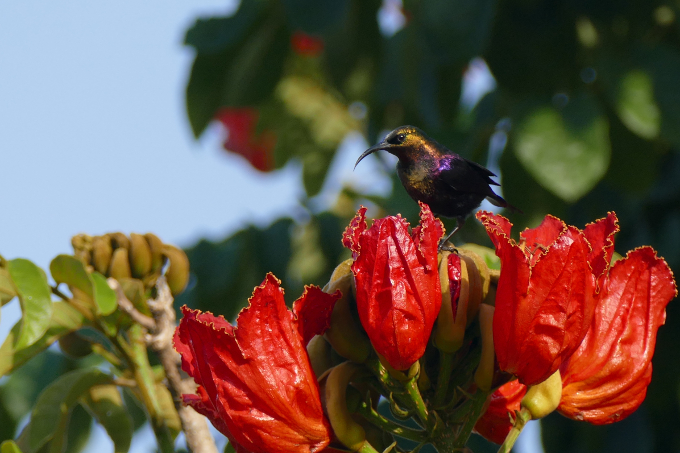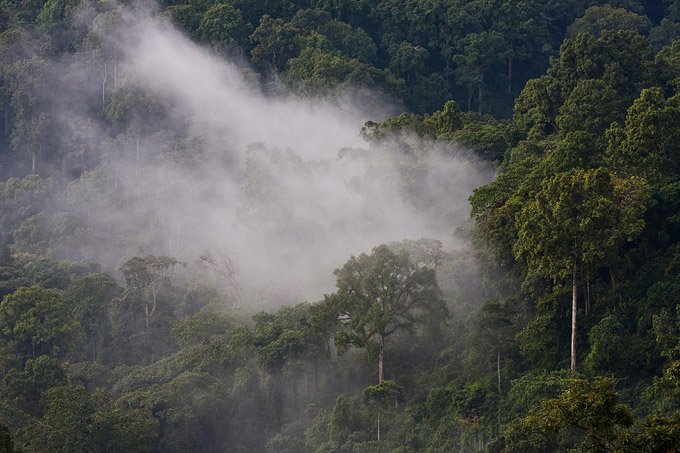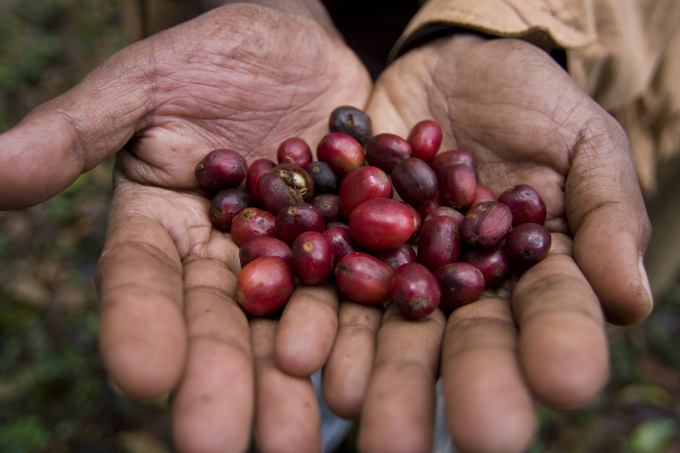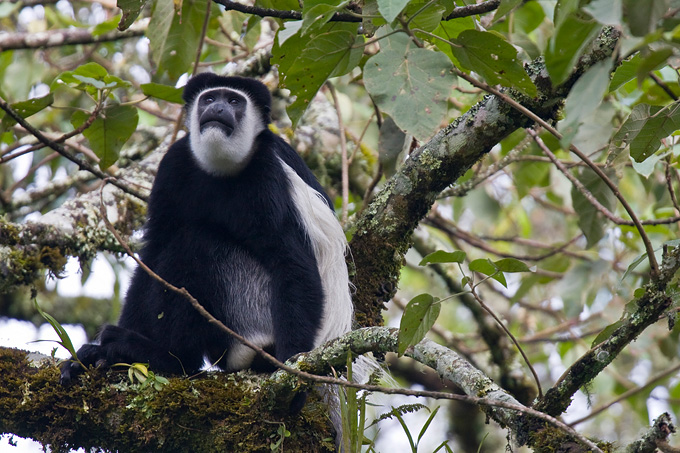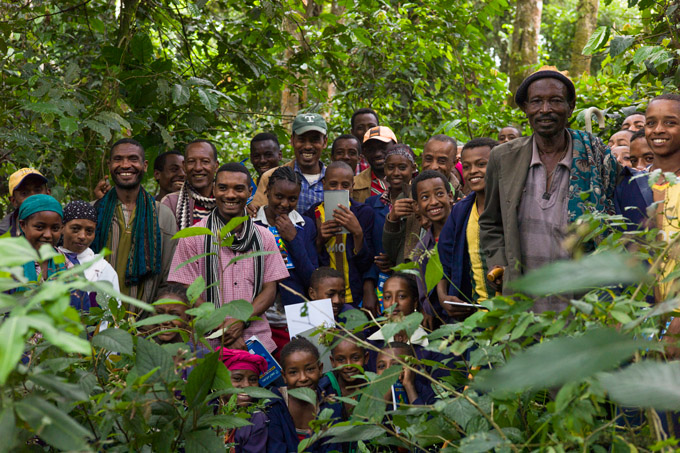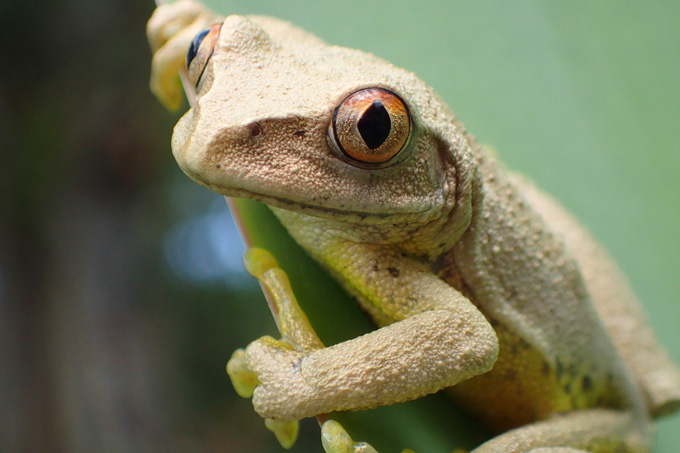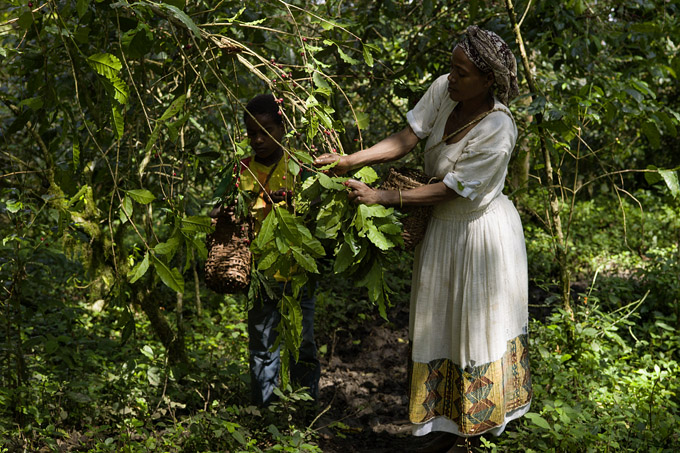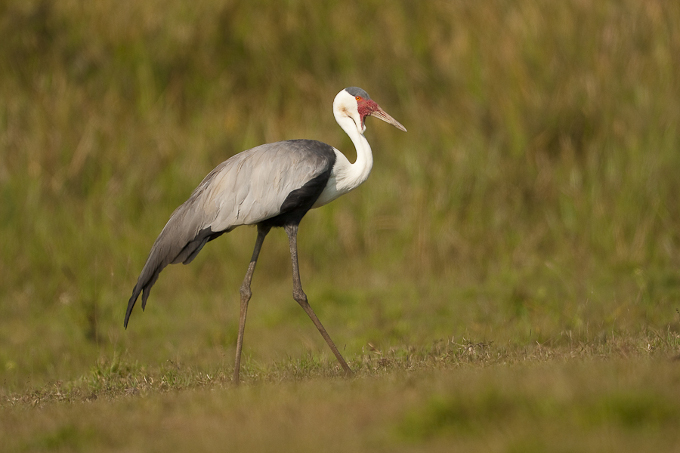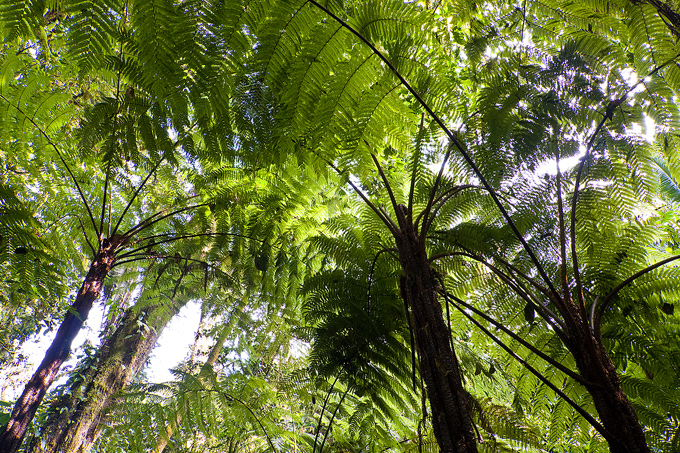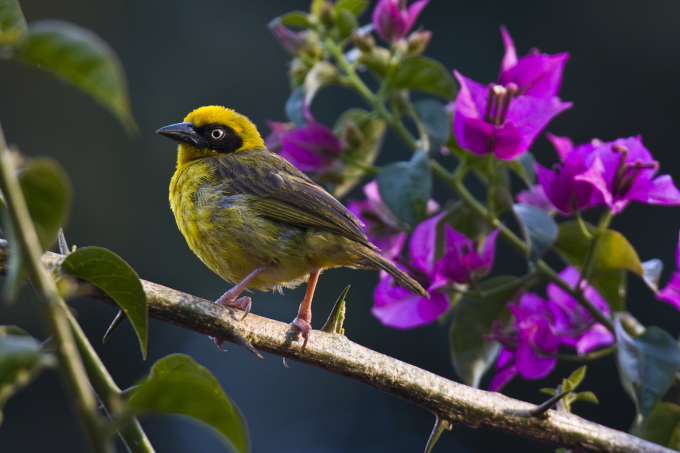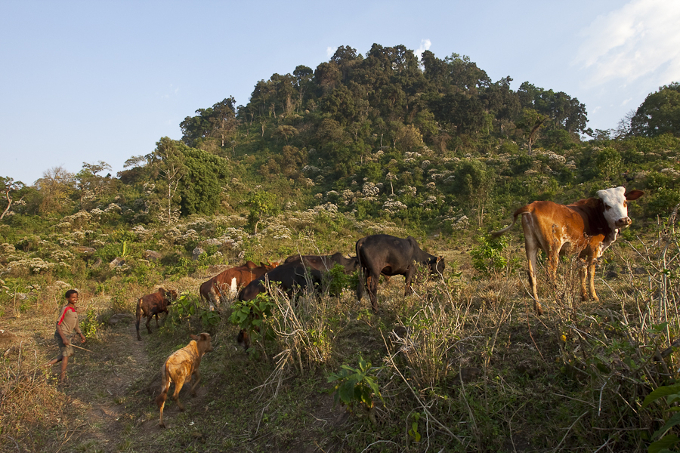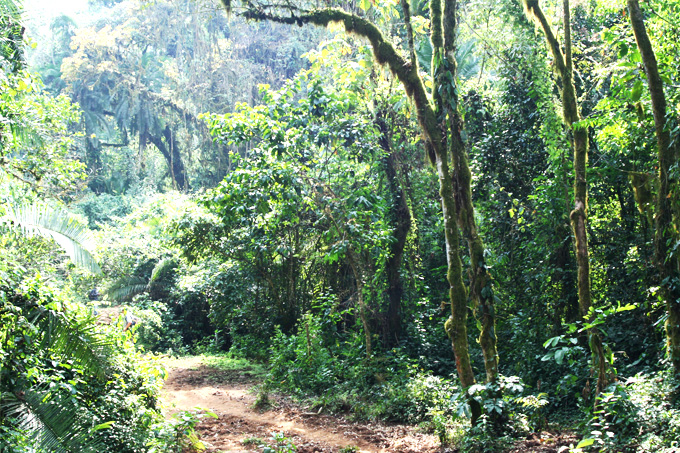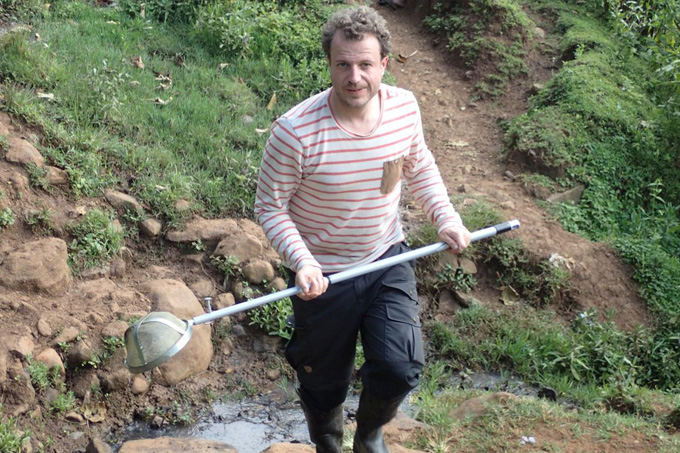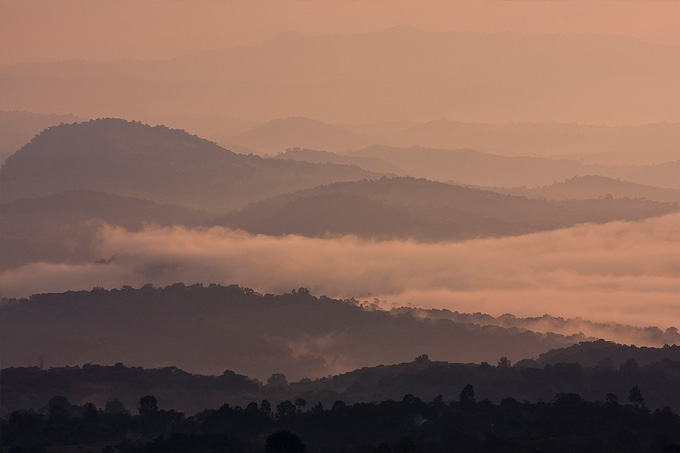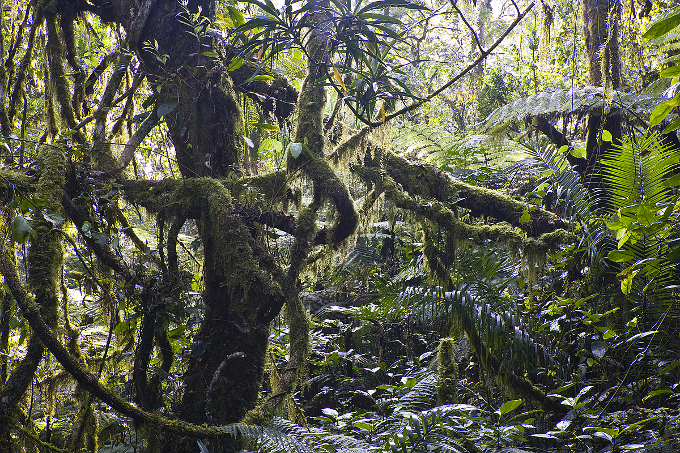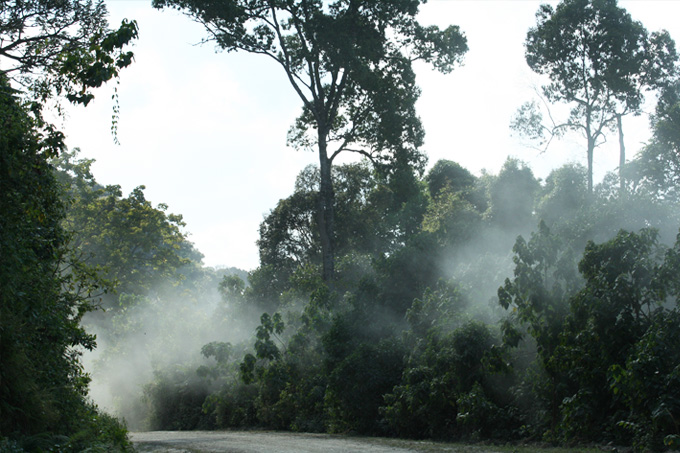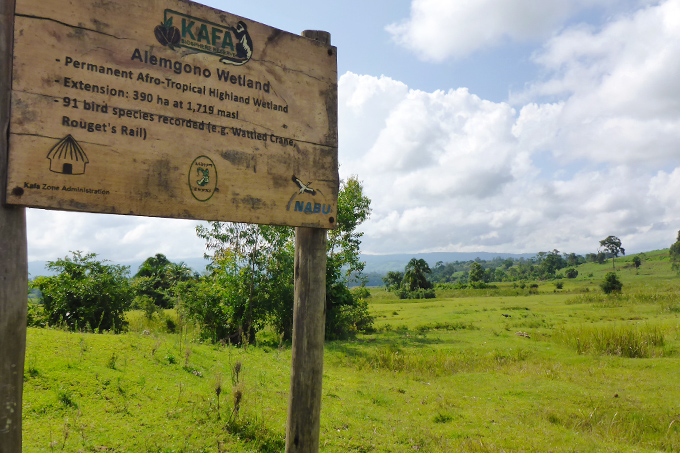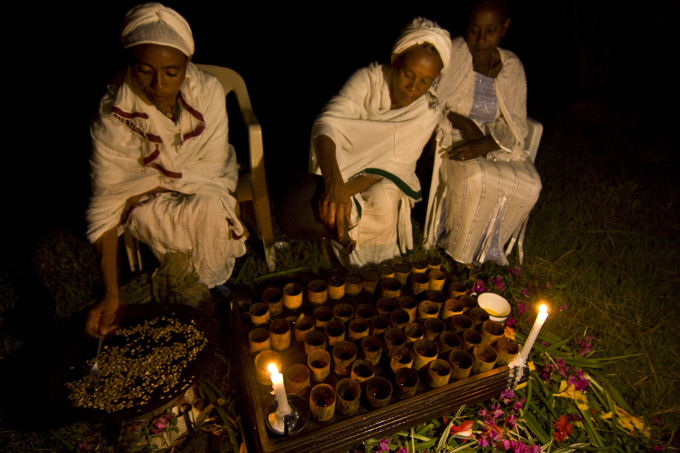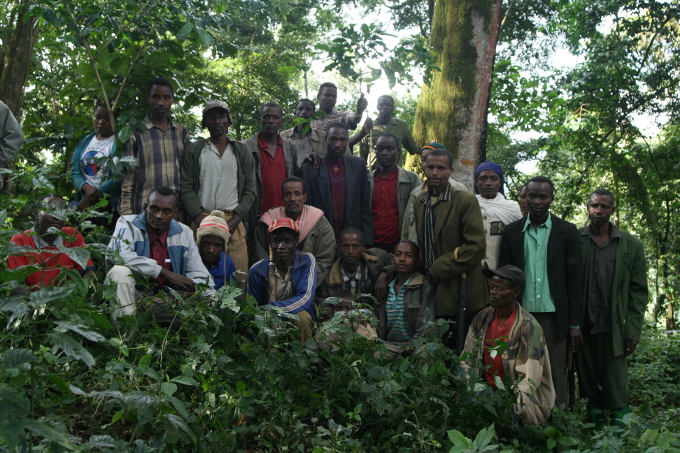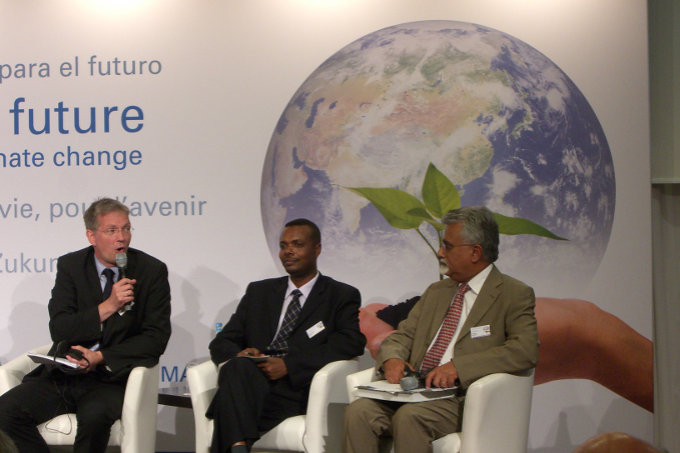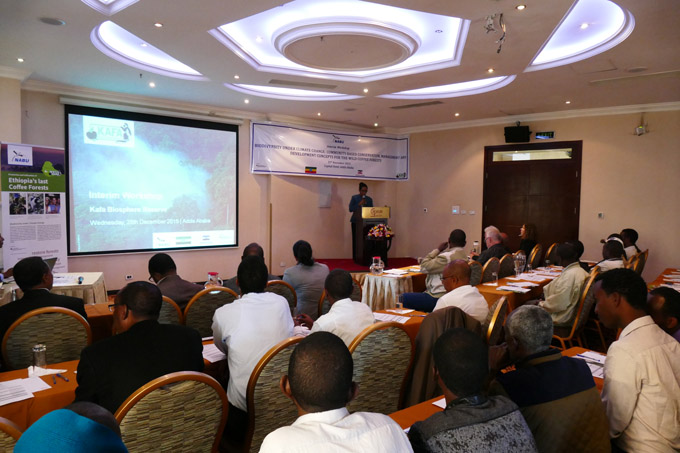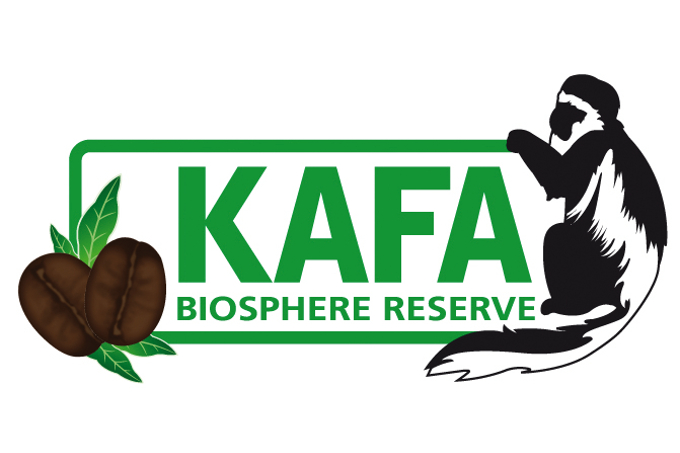Conservation and sustainable use of the last wild coffee forests of Ethiopia
Preserving biodiversity in a changing climate
Ethiopia is a globally significant biodiversity hotspot and is considered to be one of the world's most species-rich countries. The last remaining highland forests have been identified as particularly valuable key ecosystems. However, they have declined dramatically in size. The Kafa Biosphere Reserve in the country's southwest (760,000 hectares) is home to one of these last natural forest regions in the country and is remarkable for its species diversity and extensive wetlands and floodplain areas. The area is part of the “Eastern Afromontane Biodiversity Hotspot” (CI) and a “Key Biodiversity Area” (CEPF).
Life in the forest and in the water
Species recordings have documented around 244 species of plants (e.g. Cyperus latifolius, Anagallis serpens), 300 species of birds and 300 species of mammals in the Kafa Biosphere Reserve. Along with the forests, aquatic habitats are the main suppliers of ecosystem services and used by the local population to produce water, food, animal feed, building materials and to generate income (e.g. medicinal plants, basketwork). Because of its importance for biodiversity and as a catchment area, it has been placed under national protection as a “Regional Forest Priority Area” (RFPA). However, it is particularly noteworthy for being the birthplace of wild Coffea arabica, and centre of its genetic diversity, and therefore a globally significant in situ genomic library. In 2010, the area was designated a UNESCO biosphere reserve. Under NABU's management, it was planned with the support of a German Public-Private Partnership project.
-
Cloud forests at the Kafa Biosphere Reserve - Foto: Bruno D`Amicis
-
Wild Arabica coffee from Kafa’s forests - Foto: Bruno D'Amicis
-
The Colobus monkey is one of five ape species at the Kafa Biosphere Reserve - Foto: Bruno D’Amicis
-
Local communities are actively involved to preserve the environment of Kafa - Foto: Angelika Berndt
-
The forests are home to many rare and endangered species - Foto: Tom Kirschey
-
Local people are supported to use ecosystem services sustainably - Foto: Angelika Berndt
-
Around 300 bird species can be found at the Kafa Biosphere Reserve - Foto: Bruno D'Amicis
Climate change and overexploitation threaten ecosystems
Studies, however, revealed that overexploitation and climate change threaten the habitats. If the high rates of deforestation are maintained, significant amounts of carbon dioxide are released and the forests’ sink function affected. Uncontrolled fragmentation and degradation of the ecosystems would inevitably lead to a loss of habitats for flora and fauna, and as a result impact their soil moisture regime. Therefore, NABU worked towards protecting and restoring the afromontane cloud forests and wetlands, supported by the International Climate Initiative (IKI). In this way, the project preserved ecosystem resilience and the unique biodiversity, avoided CO2 emissions and secured ecosystem services for the population.
Valuing biodiversity
The project buildt on successful programmes from the previous project such as, for example, reforestation, participatory forest management or energy-efficient stoves, and expand them in order to integrate further areas and communities in Kafa. At the same time, it introduced new components developed to protect the area's unique biodiversity, and strengthen participatory community management and regional development. Offers included programmes to develop handicrafts, ecotourism and regional products, which will in return attach economic value to the region's biodiversity. Education programmes for children and young people were developed and implemented in cooperation with experts and spiritual leaders. The project supported the implementation of Ethiopia’s Climate-Resilient Green Economy Strategy, tied climate and biodiversity conservation to regional development, and helped the local population to independently ensure the long-term conservation of nature and natural resources. The project was implemented vom 2014 to 2017 with funding from the International Climate Initiative (IKI).
project GOALS & Activities
The project aims at conserving and restoring afromontane cloud forests and wetlands in order to preserve their ecosystem resilience and unique biodiversity. It also intends to avoid CO2 emissions and secure ecosystem services for the population. more →
Agriculture in Ethiopia is the foundation of the country's economy. About 11.7 million households hold account for approximately 95 per cent of the agricultural GDP and the sector counts for 85% of total employment. more →
Ethiopia currently caters for 96 percent of its energy requirement using biomass. Due to this fact, many households satisfy their demands by collecting wood from the available natural forests which has been identified as a major driver for deforestation. more →
In Kafa Biosphere Reserve natural ecosystems are under pressure due to poverty, the need of natural resources for daily life e.g. for cooking and the lack of understanding of the fragility of ecosystems. more →
In the past four years a monitoring of forest and carbon has been developed and implemented with the local team of 30 rangers. With the help of smart phones, a near-real time monitoring could be accomplished tracking and following up forest changes. more →
The Ethiopian government considers tourism as one of the most important future sources of income for the country. The number of international tourists is increasing every year. more →
Tropical deforestation is one of the main sources of anthropogenic greenhouse-gas emissions. It accounts for 20 percent of the total greenhouse gas emissions worldwide. About 40 years ago, approximately 40% of the Ethiopian land surface was covered with forest; today, only 3% of that remains. more →
10,000 hectares of forest in Kafa Biosphere Reserve will be put under a Participatory Forest Management System. By doing so the user rights of the forest will be transferred for 99 years to the local communities and the forest will serve as a long-term source of income through sustainable use. more →
Varied topography and high precipitation rates of about 2,000 mm annually have led to a large diversity of wetlands in the Kafa region, covering an area of 26,832 ha. According to the Kafa Wetland Strategy, these include river edges, peat bogs, extensive floodplains, marshes and swamps as well as riparian forests and forest wetlands. more →
Raising awareness on environmental issues, like the importance of biodiversity and conservation measures and the potential impacts of climate change, is essential for successful and sustainable conservation activities. more →
A team of 30 rangers is trained and equipped as part of the project and is now patrolling core zones and supporting various project activities such as monitoring and guiding tourists. more →
Throughout the project duration an extensive information campaign is taking place in order to make the project internationally accessible, to reach a broad public and offer information exchange to other regions. more →
In late 2015, NABU conducted two Biodiversity education camps at two sites of the Kafa Biosphere Reserve and a workshop at the Capital Hotel in Addis Ababa to present milestone results. more →
Partners & More
The project is being implemented by NABU In partnership with the regional and local government and the knowledge and support of local and international experts. The project is financed as part oft the International Climate Initiative (ICI) by the German government. more →

